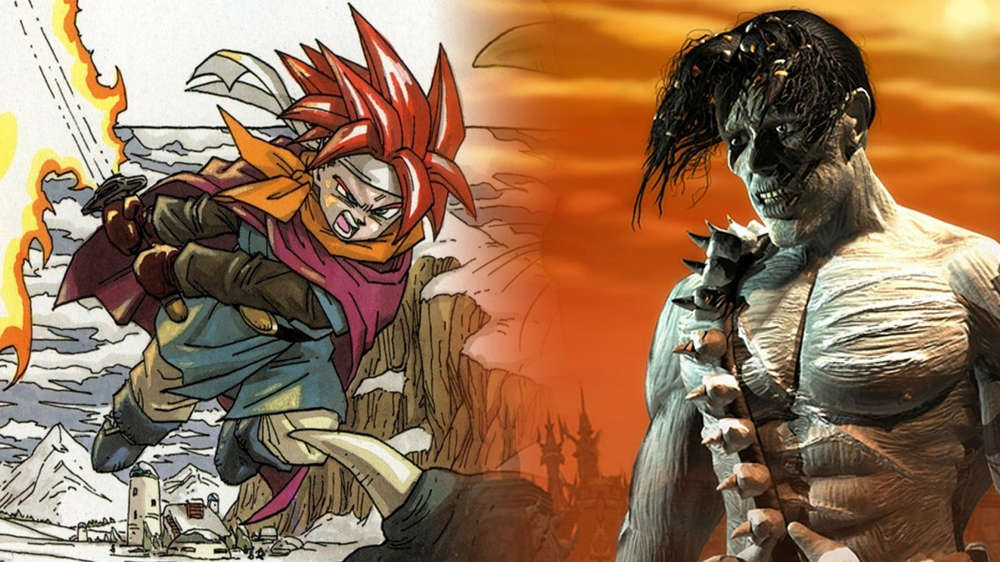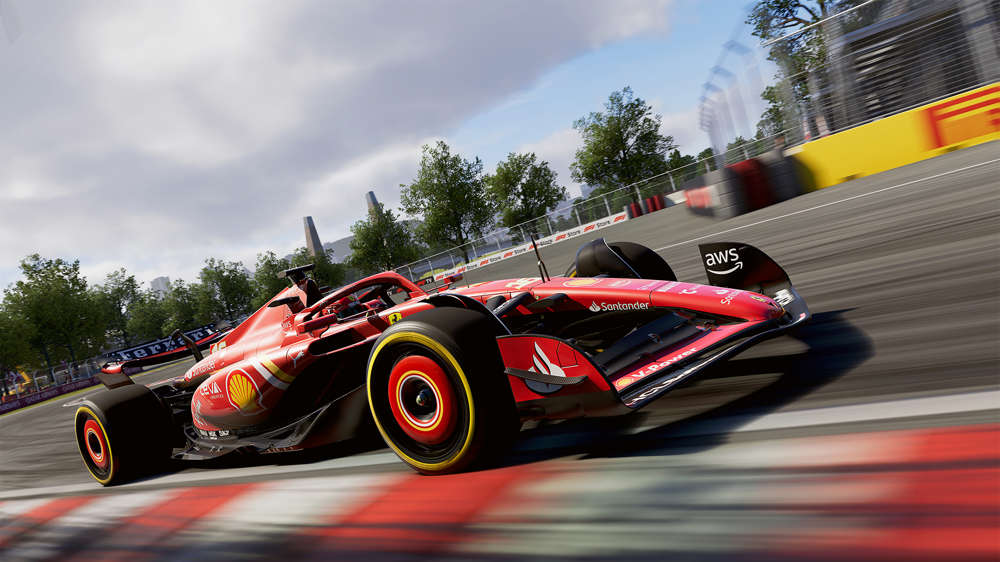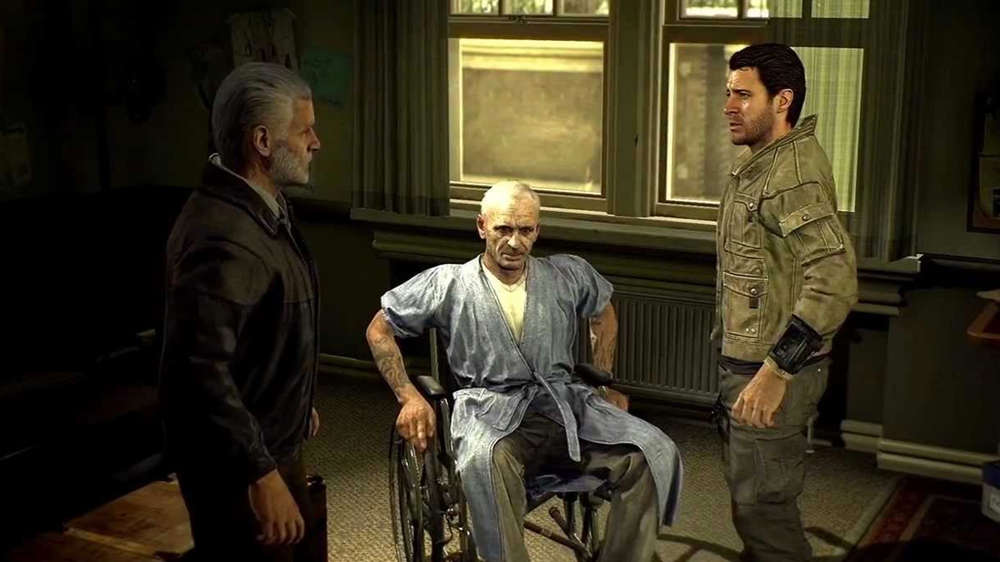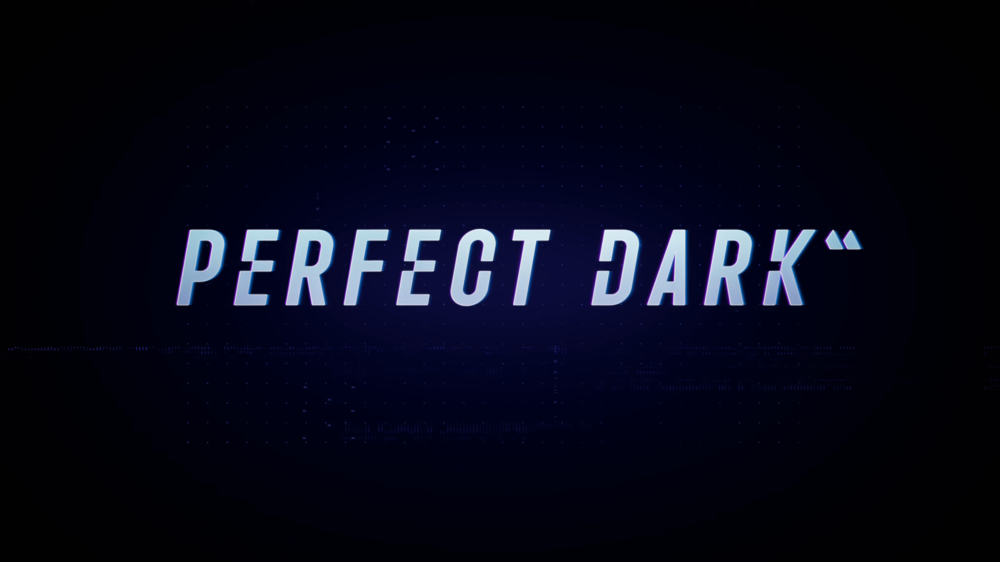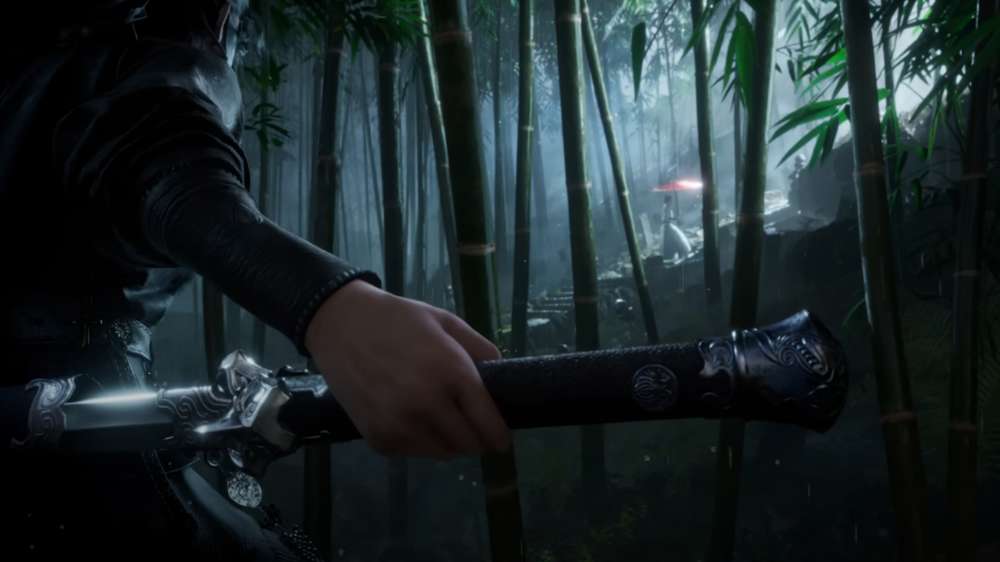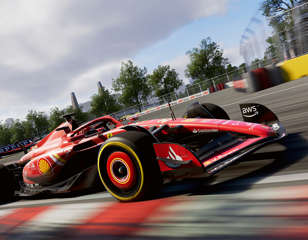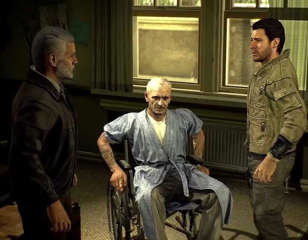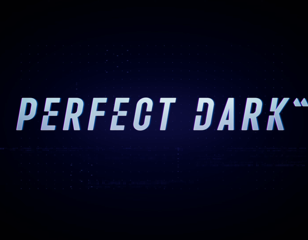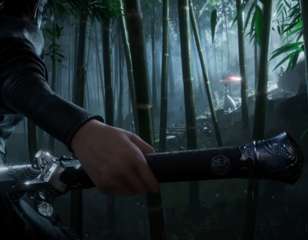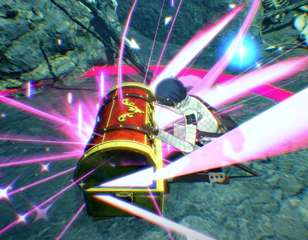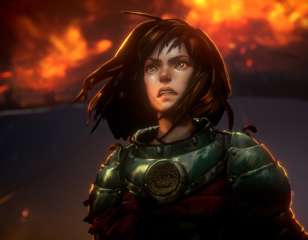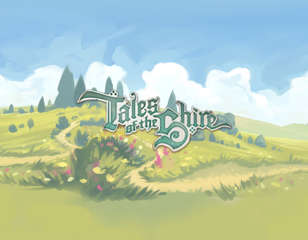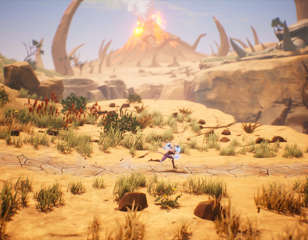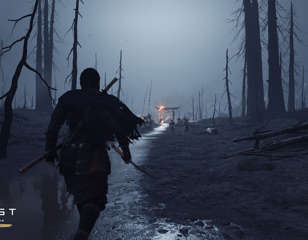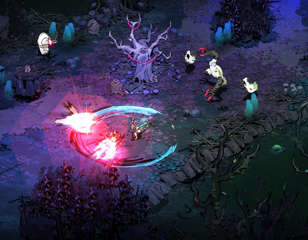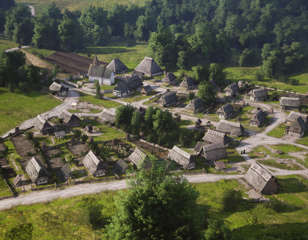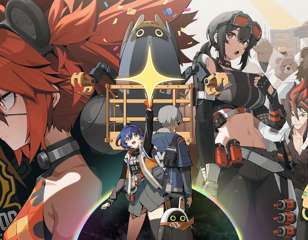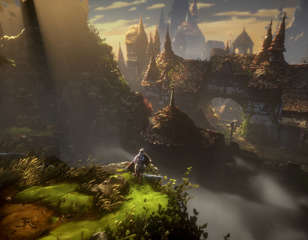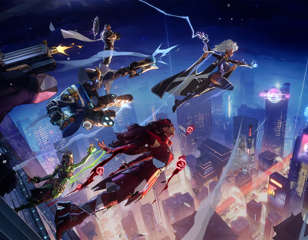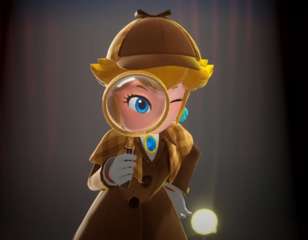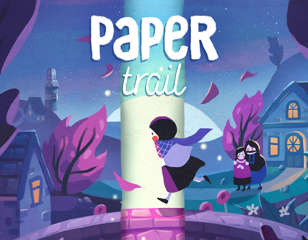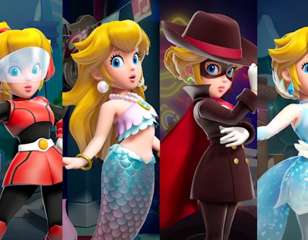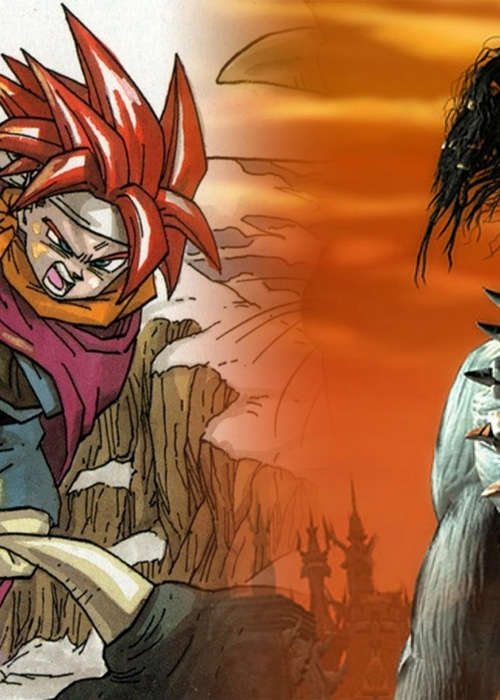
Best RPGs Of All Time: Top 50 Role-Playing Games
Role-playing games are one of the most influential genres in video games, so here's a list of the best RPGs of all time.
Role-playing games (RPGs) are one of the most popular, influential, and iconic genres in all of video games. They’ve been around since at least the 70s, and since their inception have made for some of the biggest, and most ambitious titles in the mediums' history. However, the term RPG can be quite vague, as basically every game will have you playing a role in some way, and RPG elements have bled into nearly every genre available. But what are the best RPGs of all time?
There are many elements that can make up an RPG, from specific mechanics like levelling, experience points, ability points, loot and inventory systems - to more thematic concepts like character development and progression, complex narrative and story-telling, and immersion. There are also many subgenres of RPGs: action RPGs, Japanese RPGs, massively multiplayer online RPGs, tactical RPGs, computer RPGs, roguelikes, immersive sims, and even more niche types. Despite their many differences, they were essentially inspired by one seminal work - Dungeons and Dragons, the tabletop RPG that changed how fantasy was presented in media, especially video games.
Initially, RPGs that were video games caught the CRPG tag to differentiate themselves from the tabletop alternative. As video games continued to grow, they expanded and the CRPG tag faded, until now, where it typically refers to more specific top-down, isometric RPGs. In the modern-day sphere of gaming, RPGs are everywhere and with some big titles on the way over the next few years, like Avowed, Starfield, and the next Elder Scrolls - we thought it would be a good time to look back through the years at the best RPGs. Judged by their wider influence on the medium, and their individual quality as games - here’s our list of the best 50 role-playing games of all time.
Best RPGs: Paper Mario (#50)

Some games act as perfect introductions to the systems and tenants of typical RPGs, and Paper Mario serves as an excellent example of this. A simple but colourfully fun RPG, with one of the most iconic characters leading the line. It has the typical Mario story, with Peach acting as damsel in distress while Bowser schemes a bunch. However, the gameplay and visuals set it apart from many Mario titles.
The mesh of 2D characters and 3D backgrounds, with a handmade, paper aesthetic, works wonders for the game’s presentation. The gameplay has a mix of puzzles and turn-based combat, that Mario needs allies to aid him in. Throughout the game, you’ll team up with usual Mario baddies, who this time help you in combat or through specific abilities during puzzles. Paper Mario is certainly a change in Mario formula, and much of what it does in RPG terms is quite shallow, which makes for a fun and rewarding game, but one that lacks challenge and depth on the whole.
Best RPGs: The Banner Saga (#49)

A Viking-inspired tactical RPG with a beautiful hand-drawn art style, The Banner Saga sees you follow a caravan of humans through a Norse fantasy world, attempting to survive an invasion from a race of ancient automatons. The narrative is very interactive, with several choice set pieces that will alter the rest of the experience, meaning subsequent walkthroughs can go very differently. There is also a turn-based combat system that’s challenging but rewarding, and seamlessly fits with the story.
Considering you follow an entire convoy of characters, the game does well to establish a connection to them, meaning every choice you make and defeat you suffer matters. It’s ultimately a tale of an entire people, and their fight to keep their culture and society from destruction. There are individual characters we follow to connect us to the world, but the caravan itself is a character, the society we follow is a character. It feels like a historical epic with scale and consequence. A mythic event that will be passed down through generations. A true saga of a people.
Best RPGs: Fallout 3 (#48)

Fallout 3 will be many people’s introduction to the Fallout series. Bethesda brought back the CRPG classic in 2008, but for a wider gaming audience, thanks to the first-person perspective and seamless open world to explore. It toned down many of the more hardcore role-playing elements of the first two, arguably making as many devolutions to the series as it did evolutions. For one, it took the satirised retro-futurism and Americana of the prior titles and boosted it to 11, setting the uniform aesthetic that people see when they think of Fallout.
On the whole, it introduced the legendary franchise to a new generation of players, making for an immersive journey through the horrors of post-apocalypse Washington, D.C. It’s full of the dark pessimism of the first title, and the black humour from the second, but it does balance the tones more effectively than Fallout 2 managed. The combat, while janky and rough, was also better than the previous entries and more forgiving. The quality of Fallout 3’s world and atmosphere cannot be denied, and the game always had enough options to keep it engaging, but its clear reduction in player agency and decision-making, stops it from earning a higher spot on this list.
Best RPGs: Mount And Blade: Warband (#47)

Technically, Warband is an expansion for the original Mount and Blade, but it functions as a standalone title, and is the highest regarded version of the game. Developed by TaleWorlds Entertainment, it’s a sandbox RPG in a fictional medieval land inspired by dark ages Europe. It's very open-ended in nature, allowing the players to set their own goals and challenges in a playthrough, forgoing a defined story-based structure.
The gameplay is a mix between traversing the map and real-time combat. At the beginning, you’re dropped into the world and given the chance to define the character you want. You can ally with a lord and increase your renown, eventually setting up a fief, recruiting more soldiers, and attacking settlements. Some political manoeuvring can also see you set up your own major faction, becoming a lord yourself. If the high-life doesn’t suit you, acting as a bandit is another legitimate way of playing the game. Warband is a rare type of RPG that allows you to completely tell your own story through gameplay, uninfluenced by the unseen-hand of the developers, making for a truly open-ended experience.
Best RPGs: Dark Messiah Of Might And Magic (#46)

A spin-off from the Might and Magic Ubisoft series, Dark Messiah of Might and Magic is a first-person ARPG developed by the king of immersive sims, Arkane Studios. It’s a little lighter on the RPG mechanics than many games here, but it has a robust combat and upgrade system, letting players go full combat, stealth, magic, or hybrids of them all. The kick is also one of the most satisfying kicks in video game history, thanks to the plethora of environmental hazards to utilise for it.
The game takes place in the Might and Magic universe, following a wizard’s apprentice called Sareth and his quest for a powerful artefact called the Skull of Shadows. You’ll be taken through many a fantasy locale, fighting many a fantasy creature, doing many a fantasy thing during your playthrough. The meat of your Dark Messiah experience will come from the interaction of its different systems during the gameplay. For example, using an ice spell to make a floor slippery for enemies, or knocking down a pile of barrels to crush your enemies. These immersive systems pull you into the world more, and their use is predicated on thoughtful and creative play, which does so much to bolster player agency.
Best RPGs: Rogue (#45)

Rogue is a game that has gone on to inspire so many title in the RPG space, that it has its own subgenre. aptly named "roguelike". The oldest game on this list, Rogue came out in 1980, when colour barely existed in the digital space. Consequently, the game is entirely ASCII art, with items and enemies denoted by single text characters. That can certainly make the presentation feel dated, but the gameplay and its systems still persist to this day with their quality.
Rogue is simple in premise, a dungeon crawler where the player must make their way through a monster infested dungeon to find the Amulet of Yendor. It’s primarily turn-based, and on your way you’ll fight monsters, and pick up items like weapons, armours, potions, and other magical relics. Rogue’s key design choices come from its use of permadeath and procedural generation, the cornerstones of the roguelike genre. These design decisions are what put Rogue on the map, and has kept it relevant even 40 years later in the canon of video game RPGs.
Best RPGs: Gothic 2 (#44)

Legend has it, that after Piranha Bytes released Gothic 2, they were cursed with developing the same game forever, leading to the release of Gothic 2 under different titles like Risen and ELEX for years, with no one the wiser. This is a joke, of course, we can all tell exactly what they’re doing. Outside of Germany and RPG purists, it’s an often overlooked game, mainly because its English releases were plagued with bugs and poor translation. Besides these roadblocks to enjoyment, Gothic 2 is a classic RPG in every sense.
It has a huge fantasy open world to explore, packed with locales to explore and quests to undertake. Everything in the game is hand placed, and purposely designed. No random scaling enemies or quests - if you’re too low to be somewhere you better run because it’s not for you yet. It’s a quintessential single hero RPG, allowing you to rise from a peasant to essentially a god near the end. Gothic 2 is perhaps remembered best as an example of a sandbox open-world RPG that approaches design from a ‘less is more’ perspective, focusing on the quality of the role-playing experience.
Best RPGs: Final Fantasy 9 (#43)

The Final Fantasy series is one of the longest-running and most well-known JRPG series on the planet, and has produced a number of classics which could make this list. Our first entry is the ninth game in the series, which was the first to bring FF back to medieval fantasy after three entries that were sci-fi inspired. It evolved the series’ turn-based combat system and featured some of the best graphics to date, with gorgeously pre-rendered backgrounds for the characters to explore.
One of its most celebrated aspects is Nobuo Uematsu’s score, which used uncommon instruments to construct a high fantasy soundscape and incorporated motifs from older games in the series. Its narrative was also acclaimed for its maturity in dealing with themes like mortality and death. Ultimately, FF9 returned to the roots of the series, developing a rich fantasy world full of engaging and sympathetic characters, and an emotionally resonant story.
Best RPGs: Bloodborne (#42)

Hidetaka Miyazaki has become one of the most iconic game directors over the past decade thanks to spearheading the soulsborne genre, starting with Demon’s Souls. They’re ARPGs known for their immense difficulty and cryptic worldbuilding, and have become some of the most idiosyncratic titles in gaming. Bloodborne differs itself from the rest, though, with its Gothic, Victorian architecture and aesthetic, and horror themed Lovecraftian atmosphere.
It also changed up the combat from prior soulsborne titles, with increased speed and intensity, challenging the player with getting in the face of enemies and trading blows. Bloodborne also may have the best metroidvania design of any soulsborne title, creating an interconnected labyrinth of cobbled streets and cathedrals that continuously evoke dread. As a PlayStation 4 exclusive, the game doesn’t run very well, and is capped at 30 fps, which can be detrimental in the combat at times. Nevertheless, Bloodborne is a classic and one of the most satisfyingly difficult games ever created.
Best RPGs: Pokémon Gold and Silver (#41)

The days of whipping out your Game Boy Colour on a car trip and loading up Pokémon are nostalgic for many, and Gold and Silver represents the one of the best Pokémon experiences you can find. Introducing the second generation of Pokémon games and adding 100 new species, has seen it become one of the most fondly remembered entries in the series. Plus, who can forget the legendaries in this game: Ho-Oh and Lugia.
Like most Pokémon games, it hardly changes up the formula, but it refined the creature collecting and battling gameplay while adding tonnes of little features that were essential to the experience. Gold and Silver has become a huge point of nostalgia for many people and a fondly remembered classic of the Pokémon series. Plus, when you beat the game, you then have the entirety of Kanto to go back and explore.
- Want to play something on the move? Check out the best Switch games
Best RPGs: EVE Online (#40)

Our first MMORPG to make the list, EVE Online, is renowned for its free-form gameplay, huge scale, and sheer complexity. It’s a space-based game that allows you to choose your own goals, giving the player a plethora of professions to undertake. Mining, piracy, trading, exploration, and combat are all valid objectives to take part in, that let you carve out your own niche in the star system.
EVE’s developer, CCP Games, is also famously hands-off with how they let players compete in the game, except for extreme circumstances like hacking. Players can manipulate the in-game economy and other players to their hearts content, scheming through intrigue and backstabbing. For example, corporations are EVE’s version of guilds, and a player, over the course of a year, infiltrated a rival corporation, assassinated the CEO and stole corporate property akin to $16,000 in real-world money. This is the type of insane gameplay that EVE prides itself on, and is the reason it deserves a spot on this list.
Best RPGs: Undertale (#39)

Back in 2015, Undertale took over the internet, taking everyone by surprise and becoming the biggest indie hit of the year. Developed solo by Toby Fox, it drew inspiration from JRPGs like Earthbound and Moon, and made for a wholesome and lovingly-crafted indie RPG. It follows a child who has fallen into a magical realm under Earth named the Underground, full of monsters and other oddities.
It’s largely praised for its progressiveness and creativity, making for one of the more inventive RPG experiences available on the market. The combat system implemented bullet hell style gameplay, and morality based choices, allowing the player to kill or spare all the enemies in-game, which changed the story to match. To compliment this, Fox made sure each enemy felt like their own character, eschewing the typical choice to make them faceless obstacles to tackle. At its core, Undertale is a very sweet experience that managed to walk the line of being both hilarious and heartfelt, making for a surprisingly sentimental game that gripped the gaming world.
Best RPGs: Secret of Mana (#38)

The formative title in Square Enix’s Mana series, Secret of Mana, is fondly looked back on as one of the high points of the 16-bit era of gaming. It has many similarities to the contemporary JRPGs of the time, with its fantasy theme and top-down perspective, but with its own strengths regarding the graphics and combat.
Straight away, looking at any picture of Secret of Mana will illuminate how gorgeous it still is, featuring a colourful palette and fully realised style. (Plus, the box art is still right up there with the original DOOM). The combat is also highly regarded, forgoing the turn-based battles popular at the time, for a real-time system with pause that utilised a power bar. In Secret of Mana, you’ll control three children who set out to stop an empire from conquering the world, by using an ancient flying fortress. At any one time you can control just one of the characters, while the others are AI controlled - which is noted as being highly advanced for the time - however, other players could also drop in to control the other characters. It’s still considered a pinnacle of 90s JRPGs, successfully standing the test of time.
Best RPGs: Shadowrun: Dragonfall (#37)

The Shadowrun series got its beginning back on the SNES, but its revival trilogy by Harebrained Schemes through the 2010s have become the most celebrated entries. Shadowrun’s setting is incredibly unique, combining fantasy and cyberpunk together, with added inspiration from detective and conspiracy fiction, with a highlight being the dissonance of low-life and high-tech, combined with magic and dragons. This distinct aspect of the setting is consistently explored and is often a source of conflict, serving as a great subtext on the relationship between nature and technology.
The combat is very tactical, and frequently cerebral, utilising turn-based combat akin to X-COM. It requires harmonious teamwork and a combination of the magical and technological elements of the character’s kits. It’s not the most open-ended RPG on this list, but it still has enough in terms of story choices and character customisation, allowing you to use hacking, social manipulation, and magic to progress forward.
Best RPGs: Stardew Valley (#36)

Sometimes, after a hard week of melee-fuelled battles and violent life or death situations, you just want to have a nice restful day of farming, as long as you finish it all before 2am. Which is simulation RPG Stardew Valley's wonderfully relaxing premise. In this wholesome 2D game, you leave your humdrum city days and head on over to Pelican Town to give your late grandfathers farm a new lease of life.
In between planting seeds and feeding your animals, you have to get to know the residents dotted around the Valley and build your relationship with the community. If you’re feeling brave enough, you can pick up your pickaxe and infinity sword to take on the caves for the chance to grab some very useful materials, but you do run the risk of coming across some pesky mobs. Stardew Valley refined the core gameplay of the titles that inspired it, like Harvest Moon, tackling its shortcomings to develop the most extensive farming RPG on the market.
Best RPGs: Alpha Protocol (#35)

Alpha Protocol is an espionage RPG, placing you in the shoes of a covert agent for a clandestine government agency. Eventually you go rogue - like any good spy media - and must unravel a conspiracy and save the world. It was a notoriously buggy mess, with horrid unbalanced combat, but it genuinely features one of the most comprehensive and detailed dialogue systems in video game history.
The conversations occur in real time and tend to give you the option between evoking Jason Bourne, James Bond, or Jack Bauer - all famous spies with varying personalities and tones. It’s important because each conversation with characters play like a sort of puzzle, with each dialogue choice mapping to an attitude: professional, suave, or aggressive - which change how characters perceive the player. It also goes further, influencing the characters actions in the game, where they can help or undermine the player's plans depending on past conversations. In turn, the characters of Alpha Protocol feel complex and real, with their own motivations and aspirations that keen-eyed players can use to their advantage, making for a profound dialogue-driven RPG.
Best RPGs: Ultima Underworld: The Stygian Abyss (#34)

The first Ultima Underworld title has a rich legacy to this day, as the first example of the immersive sim and first-person 3D RPG. In it, you take on the role of the Avatar, as you scour through a dungeon on the search for a powerful Baron’s daughter. It’s completely non-linear and often leads to emergent gameplay, but like any 90s RPG, it's punishing and refuses to hold your hand.
There are many simulation aspects too, requiring the player to manage hunger, sleep, and the quality of food. With a suffocating atmosphere to boot, the game can be an intensively immersive experience, that will take tonnes of your time. It certainly has many dated aspects these days, but you can feel its blueprint all over 30 years of RPG development - potentially making it the most influential title on this list.
Best RPGs: The Legend of Zelda: Breath of the Wild (#33)

Nintendo’s latest mainline Zelda title has all the hallmarks for a certified classic, which certainly rewards it a place on this list - though despite its unquestionable quality, it does lack many RPG elements that keep it from climbing higher. You take control of everyone's favourite mute hero, Link, after waking up from a decades-long slumber to vanquish Ganondorf once and for all.
It has the most open-ended and emergent gameplay in the entire franchise straight from the get-go. After a tutorial, you’re given very little instruction barring a vague idea that Ganon needs defeating again, and you’re sent on your way. Exploration and experimentation is rigorously rewarded too, and it’s hard to not feel compelled to just do so, with how beautiful and detailed the world is. The game’s soundtrack is also worth noting, with its sparse, minimalist melodies contrasting the expansive world unfolding in front of players. Breath of the Wild will be remembered for transforming the Zelda series, adding elements of immersive sims and an open-endedness never before seen in the franchise.
Best RPGs: Pillars of Eternity 2: Deadfire (#32)

Obsidian Entertainment is a titan of video game RPG development and it has more than a few entries on this list. In recent years they put a lot of focus into CRPGs during its revival in the mid-2010s, starting with the Pillars of Eternity series. The first entry was a solid title in its own right - though suffered from some archaic design choices - but the sequel improved upon nearly everything. Focusing more on player agency, and more refined dialogue and story beats.
It takes place in the world of Eora, Obsidian’s own creation (which will also feature in the upcoming Avowed). PoE has many of the classic RPG tropes, following a gifted protagonist with a party of varied characters, while you set out to take on the forces of the world. The setting is largely maritime based, with emphasis on seafaring and ship combat, which sets it apart from other fantasy CRPGs and leaves it from retreading old ground. While it certainly doesn’t reinvent the wheel, PoE has enough ideas to give it a contemporary quality, and is a solid example of a modern CRPG offering.
Best RPGs: The Elder Scrolls 5: Skyrim (#31)

Ahh... Skyrim. Possibly the most successful RPG of all time, and one that Bethesda has been riding the success of for a decade. Anyone who has put time into the game can easily understand why it’s become such a cultural cornerstone of video games. It’s simple to play and understand, and features a large fantasy world for players to explore and quest in. Certainly, Skyrim is light on the more hardcore RPG features, and it can be criticised fairly for the lack of depth to its role-play, but very few worlds can draw you in quite like the mountains of Skyrim.
Set in the Norse-inspired northern lands of Tamriel, Skyrim sees you take on the role of the prophesised Dragonborn - someone with the power of the voice, essentially meaning they can speak dragon tongue. It’s sheer scale still blows some titles away to this day, and as a power fantasy where the player can become THE adventuring hero of legends, it’s unrivalled. Placing it this low on the list may ruffle some feathers, but we still can’t forgive its regression in the role-playing aspects and questing from prior titles.
- Got friends round and need something to play? Try out these best party video games
Best RPGs: Nier: Automata (#30)

Nier: Automata is a peculiar case of the same story being told over and over, that never ends up losing any of its magic with every recounted event. The odd, high-concept plight of 2B and 9S and their assignment from YoRHa is one that never shies from bold risks, in both its twisted and bizarre narrative, and its combat that will make you feel like an indestructible badass with every slash and slam.
The game's design, haunting soundtrack and oddly charming android foes all come together to make an RPG experience you can only get from a Nier game, and allows you to dissolve into a decaying landscape like no other. It's no surprise that many have compared Kirby and the Forgotten Land to the RPG - it's because Nier: Automata has well and truly set the benchmark for the genre's post-apocalyptic adventures. Nier: Automata is strange and unruly - but it's all the better for it.
Best RPGs: Path of Exile (#29)

After a few years of the isometric ARPG genre stagnating, with very little of note releasing, a few fans decided to come together to make their own game, and thus Path of Exile was born. It takes place in a dark fantasy world, where the player takes the role of an exile on an island called Wraeclast, fighting their way back to civilisation. It’s ruthlessly violent, with hordes of cursed creatures for you to take on with a plethora of weapons and abilities.
One of its most celebrated features is how classes and the combat intersect. Classes aren’t restricted to certain weapons or abilities (as long as they meet the level and skill requirements), letting players develop unusual playstyles that fit their preferences. There is also the huge passive skill tree, which features over 1300 skills. Players start on certain areas of the tree and can spec into whatever direction they want, to develop their own character. It’s also free-to-play, which is a huge selling point for a game that has a gameplay loop refined to perfection and tonnes of content to discover.
Best RPGs: Mass Effect 2 (#28)

The Mass Effect series became a mainstream AAA success during the late 00s and early 10s, enrapturing gamers with its rich sci-fi universe, action-packed third-person combat, and the chronicle of protagonist Commander Shepherd. Mass Effect 2 is easily the high-point of the series, serving almost as one long quest leading up to a bombastic and epic climax which is hugely influenced by your relationships to the characters who join you along the way, and the choices you make throughout. The game has a very dated approach to morality, which is a binary system, presented as Paragon and Renegade choices, though the character interactions do make up for it.
The combat was massively improved for the sequel, thanks to much tighter design and better weapons, with inspiration from cover-shooters like Gears of War. To match with this, the game’s pacing was revamped to get the player into the action faster, which led to a much better balance of narrative and combat elements than the first game. ME2 is a standout example of an action-focused RPG that melds with its story to great effect, to craft a galaxy-spanning saga.
Best RPGs: Pathfinder: Wrath of the Righteous (#27)

One of the best games to come out of the recent CRPG renaissance, Pathfinder: Wrath of the Righteous is based on the Pathfinder tabletop RPG setting, and is a sequel to the acclaimed Pathfinder: Kingmaker. The character customization available in Pathfinder is likely second to none on this list, with 24 classes, 12 races, multiclass features, and over 1000 spells, feats, and abilities. All of this allows for the player to create distinctive characters with their own playstyles, so they can move through the game their way.
The combat lets the player choose between a turn-based and real-time with pause system, in a story that sees you take part in a crusade against invading demons. A new Mythic path system gives the player the ability to turn into legendary beings - like dragons or literal gods - by specialising into a specific path over the course of the game. It’s one of the few titles where a selling point of 'your choices will change the world around you' isn’t just a vague buzz word, but a fully fledged feature.
Best RPGs: The Elder Scrolls 3: Morrowind (#26)

Not the first Elder Scrolls game released (evidently) but the one to put the series on the map amongst mainstream gaming, and a title that changed how RPGs were perceived on console. Morrowind continued the Elder Scrolls core ethos of free-form experience, dropping the player into the world, hinting at the main story and then letting them go and play their way, ignoring the main quest if they choose. It understood the importance of player agency, immediately giving the player the tools necessary for expressing their in-game self-identity, from the get-go.
Its first-person perspective is also of note, as many of the key RPG games before this utilised the isometric, top-down perspective, and early first-person RPGs weren’t nearly as immersive as Morrowind could be. The immersiveness of Morrowind, while thanks to the first-person camera, is also richly aided by the world’s seamless blending of high-fantasy, steampunk-lite, and apocalyptic themes. The diversity of the differing factions that include political organisations, guilds, religious sects, and aristocratic houses also massively added to the worldbuilding and lore, creating a life-like tapestry of interconnecting groups and characters with their own goals. Morrowind’s world is one that is easy to get lost in, and even today, few RPGs have struggled to match the atmosphere and feelings Morrowind evokes.
Best RPGs: Deus Ex: Human Revolution (#25)

Cyberpunk settings are the trendy thing right now across the media landscape, but in gaming it’s been a popular setting and theme for years. Deus Ex: Human Revolution is an immersive sim, with first-person shooting, stealth, and many role-playing mechanics, that makes for one of the best cyberpunk experiences on the market. You play as Adam Jensen, who is cybernetically enhanced after a terrorist attack leaves him near dead, and his ex actually dead. From there, Deus Ex will take Jensen on a conspiratorial globe-trotting adventure, that can be approached in a manner of different ways.
One of Human Revolution’s key strengths is its level design, that lets players approach the missions with their own playstyle, though usually under the umbrella of stealth or combat, with some social manipulation too. This is complimented by the expansive abilities that you gain from upgrading your enhancements, such as super strength, higher jumping, safe falling, and resistant lungs. Narratively, Deus Ex is rich, with thematic observations of transhumanism explored through a fear of social and class divides, and how the social order of a society is shifted by the growing power of megacorporations.
Best RPGs: Pokémon X and Y (#24)

Here we have the Pokémon title that brought the franchise into the world of 3D, marking the start of a new era for the premiere creature collecting series. Obviously, it kept the core of the Pokémon experience - refined by years of titles - and introduced some new features that added to the overall adventure. One of the major overhauls, was the disappearance of the 2D sprites which had persisted for years, turning them into full 3D renderings of the Pokémon we all know and love. It added a new dimension to the battles (literally) and in unison with the feature to interact and form bonds with your Pokémon, it brought you closer to them more than ever.
In terms of the Pokémon it introduced, X and Y added the fairy-type, with the likes of Spritzee, Sylveon, and Xerneas. It also added the mega evolution, which let players further evolve their Pokémon who’d already evolved fully. As a series you don’t get much difference between the Pokémon games, with small changes and additions with each new title, but X and Y managed to make some of the most important ones since the series began.
Best RPGs: Persona 5 (#23)

Honestly, Persona 5 is weird, but that good kind of weird. It will see you playing as a character that goes by Joker, who has to balance his life as a student in the greater Tokyo area while trawling through dungeons fighting shadow monsters. In those dungeons, however, your character's persona takes over, which is a physical manifestation of their inner being, imbuing them with new powers and abilities.
One of the most standout aspects of Persona, is its sense of style, which is apparent in every bit of the game, from the user interface, music and environments, all the way to the characters and combat system. It's a game that makes its presence known from the get-go and doesn't hold off until the credits roll. It has become one of the most acclaimed JRPGs of the last decade thanks to all this, and a thought-provoking story that provides biting social commentary on modern-day Japan and the concept of belonging.
Best RPGs: System Shock 2 (#22)

System Shock 2 has rightfully earned its credit as one of the best games of all time, thanks to its perfect combination of role-playing and survival horror that challenges the player to conduct the experience as they want, whilst making them second guess every decision out of fear. This journey across a starship full of parasitic mutated humans and animals, while a rogue A.I. taunts you, is horrifying. The A.I. in question, named SHODAN, has become one of gamings most iconic antagonists, still haunting our nightmares due to her incredibly discordant sound design, and delivery by Terri Brosius.
System Shock 2 was also one of the first games to effectively deliver backstory, lore, and the wider context of the narrative through the use of audio logs and notes that players can discover around the environment. The role-playing mechanics allowed for relatively simple interaction with the environment, like hacking certain doors or vents, but it bolstered the horror even more by ramping up the existential aspect. Simply put, System Shock 2 is a terrifying experience to this day and one of the best horror-themed RPGs out there.
Best RPGs: Final Fantasy 14 Online (#21)

To put it bluntly, Final Fantasy 14 might have one of the best comeback stories in gaming history. It first released in 2010 to huge critical and fan backlash, causing the game to be shutdown only two years in and rebooted. It came back as A Realm Reborn over a year later, completely revamped, with an in-game explanation that a dragon destroyed most of the world.
The new edition completely changed the core gameplay, interface, and story, addressing many of the criticisms of the first release. As an MMO, it is currently one of the biggest on the market and has three expansions already released, with another on the way. It features solid boss battles, that require good teamwork and familiarity with your kit. The story is engaging to play through on the whole, featuring fun and likeable characters. Though most importantly, as an MMO, it doesn’t always feel like one (in a good way), forgoing the grindy gameplay style that can put many off from the genre.
- Play on Xbox or PC? Check out the best Game Pass games available on the service
Best RPGs: Earthbound (#20)

Released as Mother 2 in Japan, Earthbound has become a sacred title in the JRPG genre. Highly praised by critics and fans alike for its bizarre uniqueness compared to its contemporary releases, it's gone on to consistently be in the conversation as one of the greatest video games of all time.
Earthbound made many choices that differed from traditional JRPGs of the time, such as 8-bit graphics, using a diagonal camera view, focusing on a satirised modern setting, and aiming for a surrealist tone and quirky humour. One of its best qualities is how universally relatable the game is, thanks to the lead designer wanting to make it for people who didn’t typically play games or were not marketed towards at the time. The final showdown against villain Giygas is also a high-point, consistently remembered for its horrifying visuals and emotional impact. It’s a mark of the narrative potential even the earliest games in the medium possessed, and is still just as effective 25 years on.
Best RPGs: The Elder Scrolls 4: Oblivion (#19)

The next Elder Scrolls title after Morrowind had a lot to live up to, and Oblivion arguably did that and much more. Oblivion is the more fantastical and fairy tale-like of all the 3D Elder Scrolls titles, full of wondrous vistas and environments inspired by rural Europe. In the game, the world of Tamriel is under invasion by the Daedric forces of Oblivion, and your character is tasked with fighting them back.
Bethesda opted to refine the gameplay more, tightening the pacing and placing more emphasis on the main story. This didn't distract them from the side quests either, as Oblivion features some of the greatest missions in RPG history, with the Dark Brotherhood storyline being a real stand out. It can be a little generic fantasy sometimes, but the triumphant impact of the story makes the time you'll spend in Cyrodiil worth it.
Best RPGs: Arcanum: Of Steamworks And Magick Obscura (#18)

Releasing in 2001, Arcanum turned out to be an instant RPG classic, full of varied playstyles, intricate factions, and a unique setting that sees a fantasy world in the midst of an industrial revolution. Arcanum is incredibly large and complex, both in scope and execution. There is an impressive amount of reactivity here, largely thanks to its ambitious character system and complicated narrative, that lets you play through it in a myriad of ways. It also forgoes many narrative tropes of typical CRPGs, putting a twist on the whole 'chosen one' routine.
A central conflict of magic and technology is core to Arcanum, with both having disastrous effects on each other. The world, while huge, is also well realised. There's a deep, resonating melancholy that persists throughout the land due to the massive changes the world and society within it are undergoing. This allows it to feel very current, even 20 years on, with very relevant thematic observations on Capitalist systems and exploitation.
Best RPGs: Fallout 2: A Post Nuclear Role Playing Game (#17)

It's pretty well accepted that Fallout 2 is one of the best RPGs ever created, but for many Fallout fans, it felt like a huge departure from the first - and in more than a few ways. It plays mostly the same as the first title, with the isometric perspective, turn-based combat, and world map all returning, but with some quality of life improvements.
The world of Fallout 2 is much bigger, with probably three times the content of the first outing, and it even improves massively on the character and factions systems, putting more emphasis on the latter. However, it lost the coherence of the first game, which often revelled in its bleak world and pessimistic attitude about human nature. Fallout 2 definitely has enough of the horror and haunting representation of humanity that the first does, but it muddied it with jarring tonal shifts from a litany of pop-culture references and black humour that lost their sharp bleakness. With that said though, Fallout 2 is still without a doubt still one of the all-time greats thanks to its world, narrative, and character systems that lead to a wealth of role-playing possibilities.
Best RPGs: Final Fantasy 7 (#16)

When many people think of the Final Fantasy series, it's this entry that comes to mind first, with its spectacular visuals and powerful story. It's so celebrated that many developers will point to it as their inspiration for getting into the industry to begin with, and considering the unreal quality of Final Fantasy 7, it's easy to see why. The game take places in the vaguely futuristic, cyberpunk-inspired city of Midgar, where we follow the protagonist Cloud Strife as he fights against the Shinra megacorp, who seek to drain the planet of all its resources.
It kept many similar elements to prior Final Fantasy games, such as the turn-based combat and general systems like the world map and field map. However, one huge change, was the addition of fully CGI rendered backgrounds that the developers could utilise much more cinematic camera angles for. This new technology paired well with the story, making for one of the best Final Fantasy narratives to date, that features one of the most iconic character deaths of all time. If you know, you know.
Best RPGs: Crusader Kings 3 (#15)

The Crusader Kings series are grand strategy role-playing games, a combination that doesn’t often cross paths, but has made for one of the most in-depth and cerebral titles on this list. CK3 is a dynasty simulator that challenges the player to keep their dynasty alive over the course of the medieval period, where you'll control the head of a house and the subsequent heir, whenever your player dies.
The game allows you to try to maintain and gain more power through a myriad of ways. War, political intrigue, seduction, theological manipulation, and more are all valid ways to achieve your goals, and over a playthrough you'll likely try many methods. Each character has a personality dictated by traits, meaning they can range from an honourable warrior-king to a sadistic, conniving schemer. You're encouraged to role-play too, as not following your character personality can result in stress, which will have adverse effects. On the whole, Crusader Kings 3 is one of the most replayable games on this list, and with future DLCs it will only expand to become more comprehensive.
Best RPGs: World of Warcraft (#14)

Simply put, few games have the longevity of World of Warcraft. Even after all this time, with eight expansion packs released, it's still the king of the MMO genre in which it has reigned over for the better part of 20 years. WoW also set the standard for theme park MMOs, creating the uniform structure of questing, dungeoneering, and raiding - that multiple games have been directly influenced by over the years. It's a game steeped in rich lore, which makes for a robust, life-like world full of entertaining characters, and of course the litany of other players that populate it.
There are certainly dated aspects of the game these days, as newer MMOs have started to challenge its supremacy, but at the end of the day, few games will have the legacy and influence of World of Warcraft.
Best RPGs: Dark Souls (#13)

Dark Souls is the game that really put the soulsborne genre on the map, and is still often considered the best of the bunch. It has a rewarding and tactile combat system, that is only bettered by the game's challenge, and intense boss encounters.
The game's world is also of note, obscuring much of the lore and leaving interpretations of important events up to the player. It employs excellent minimalist storytelling, routinely giving most of the information through limited NPC dialogue, flavour text, and world design. This helps to augment your journey of self-discovery through the world, reinforcing your character's sense of isolation and existentialism. Very few games can achieve what Dark Souls has, reaching the zenith of third-person ARPGs, despite an unforgiving difficulty and cryptic worldbuilding.
Best RPGs: Diablo 2 (#12)
Stay awhile and listen! For years and years, Diablo 2 was considered the premiere isometric ARPG. For many people it perfected the genre; with it's fulfilling, bloodthirsty combat; gratifying loot and crafting system; detailed classes that promoted different playstyles; and the sinister combination of dark fantasy and horror themes. It even set the standardised HUD for the subgenre, with games like Torchlight and Path of Exile following in its stead almost exactly.
At its time of release, it was a truly boundary-pushing experience regarding every facet of its being. The soundtrack contained incredibly immersive qualities, utilising experimental instrumentation and ambient industrial soundscapes, that served to further the creepy horror atmosphere. Diablo 2 will be remembered eternally for its tight and rewarding gameplay loop, and story that takes the player on a journey into the depths of hell to slay Diablo himself.
Best RPGs: Baldur’s Gate 2: Shadows of Amn (#11)

Baldur's Gate 2 is typically considered the best Infinity Engine title from the perspective of gameplay and combat. It features some of the best encounter design in RPGs, complimented by thoughtful and tactical combat that will challenge you to make the most of you and your parties kit. Diversity is also one of its major strengths, with such a wealth of engaging content to undertake throughout, that it will absorb you for hours.
On the story side, it may suffer somewhat from the similar narrative tropes of its contemporaries, but it delivers it with such a clear mark of quality that it barely matters. The main villain Irenicus is also of note, thanks to a fantastic voice acting performance, that brought the sinister mage to life. The game also has an excellent selection of companions that feel like wholly-fleshed out characters, fully capable of drawing the player's admiration or ire, which will in turn affect their story and outcome in the game.
- Looking for something new to play on console? Check out our list of the best PS5 games
Best RPGs: Divinity: Original Sin 2 (#10)

One of the newest games to place on this list, it's the latest entry in the long-running Divinity series, which despite going for twenty years now has only really found its feet with the Original Sin games. Divinity: OS 2 is an isometric CRPG with a robust turn-based combat system, that allows players to employ complex tactics and has an unrivalled level of environmental interactivity.
It may not have the writing chops or narrative depth of other games on this list, but Divinity's quality shine through clear when playing, largely thanks to the incredible breadth of content to explore. 'Bigger equals better' has shown to be a falsehood often, but if there's one game that effectively evokes that statement, it's Divinity: Original Sin 2 and that's why it's firmly one of the best RPGs of the 2010s.
Best RPGs: Fallout: New Vegas (#9)

With New Vegas, Obsidian sought to return to Fallout's roots, and so set out to continue the narrative legacy of the first two titles. To say they succeeded is an understatement, but the result was for many the best modern Fallout title.
You play a courier in the Mojave Desert who is shot in the head and left for dead by Chandler Bing, and upon waking up you set off on your path of revenge. Along the way, you'll interact with a myriad of conflicting factions representing varying ideologies, who you can deal with as you please. Consequently, the choice and consequence system in New Vegas is unparalleled, with a plethora of satisfying role-playing options that lead to different resolutions when dealing with quests or characters. On the whole, Fallout: New Vegas is easily one of the best RPGs ever made, and a thorough observation on the corrupting force of greed, along with the regular Fallout themes surrounding war and the cycle of violence.
Best RPGs: The Witcher 3: Wild Hunt (#8)

While the world is now infatuated with The Witcher after the success of the Netflix show, CD Projekt Red's third instalment in the video game franchise rocked the gaming industry back in 2015. Following on from the second game, Assassin of Kings, which was perfectly fine as an RPG, but certainly not mindblowing. Wild Hunt took Geralt, Yennefer, Triss, and all the other popular characters, and created one of the best narratives and worlds we've ever seen in a video game.
While the combat mechanics divided opinion from some thanks to their uniqueness and unfamiliarity, Geralt's dry wit and the huge, handcrafted world kept players hooked. Not to mention quests like Family Matters and Ladies of the Wood, which are two prime examples of incredible storytelling and design. The Witcher 3: Wild Hunt has 100+ hours of content to explore and enjoy, and is undoubtedly CDPR's finest work yet.
Best RPGs: Deus Ex (#7)

Set in a near-future Cyberpunk dystopia, in Deus Ex, you play as the agent of an anti-terrorism unit who is tasked with unearthing a world-altering conspiracy. Unlike many games of its type, Deus Ex doesn't force you down a focused corridor of character customisation including stealth, action, or some other method. Instead, challenging the player to utilise all the tools and skills at their disposal. It's player agency at its peak, allowing you to identify the problem and solve it yourself.
This open-ended design philosophy allowed the game to blend many genres together, and not just focus on the conventions of RPGs, which arguably was what facilitated it in pioneering the immersive sim. Even to this day, Deus Ex stands as a hallmark of immersive game design, largely thanks to its choice to prioritise player agency and freedom.
Best RPGs: Vampire: The Masquerade - Bloodlines (#6)

It wouldn't be a best RPG list without including an absolute broken and buggy mess that's only playable thanks to community patches and mods. That's where Vampire: The Masquerade - Bloodlines comes in, a game where you're turned into a fledgling during a bit of randy promiscuity, then suddenly thrust into the world of vampires. It's admittedly rough around the edges, with an unbalanced end-game and awful combat, but its aesthetics and excellent writing make up for it.
Vampire: The Masquerade - Bloodlines has an almost unmatched pedigree in effectively curating an atmosphere. Letting you soak in the seediness of the vampire underworld, revel in the gothic pageantry of high-society, or just experience the horror of an actual society inhabited by vampire kin. Perhaps the game's biggest strength is its characters, who feel fully-realised thanks to excellent voice acting, writing, and worldbuilding. This means every inch of Los Angeles you explore is informed by the vampire society you inhabit. Bloodlines replayability is also aided by the different vampire races you can choose to play us, making for extremely different walkthroughs - especially as a crazed Malkavian or fugly Nosferatu.
Best RPGs: Fallout: A Post Nuclear Role Playing Game (#5)

At a time when RPGs were declining in popularity, Fallout came and revitalised the genre, spurring a renaissance and changing the course of the CRPG forever. You play a vault dweller who must venture into the nuclear wasteland in search of a water chip to save your vault's inhabitants. It revels in the moral ambiguity of its characters and the players decisions, regularly giving players tough choices that can dictate the future of entire settlements and tribes.
The game's mood and atmosphere are also unmatched - bolstered by Mark Morgan's score, the beautifully desolate environments, and the haunting representation of humanity's struggles to rebuild. The world of Fallout is cruel and harsh, leaning into the bleakness of the setting, with its thematic core best summarised in Ron Perlman's iconic intro monologue. Ultimately, the clarity of its design and consistency make for one of the most coherent RPG experiences available, that still feels just as inventive today.
Best RPGs: Chrono Trigger (#4)

On the Mount Rushmore of JRPGs, Chrono Trigger stands firmly next to Final Fantasy 7 and Earthbound as examples of the genre perfected. In the game, you'll play a group of adventurers who have to manipulate time in order to save the world from catastrophe, which may be somewhat cliché for the period, but it builds on this premise with the utmost quality.
Chrono Trigger was revolutionary in many aspects, implementing some philosophies of western RPGs, such as multiple endings that depend on your choices, plot-related side quests, and a focus on character development. Mechanically, it's also solid, but simple, thanks to intuitive combat and the time travel element, which lets players influence future eras with their decisions in the past. To this day, no JRPG has managed to surpass the greatness of Chrono Trigger, and it'll be a while before anyone can combine the narrative and gameplay mechanics as effortlessly.
Best RPGs: Star Wars Knights Of The Old Republic 2 - The Sith Lords (#3)

The Star Wars licence has a litany of quality video games, with Knights of the Old Republic 2 standing at the apex thanks to its unique and complex take on the IP. The head designer wasn't a fan of Star Wars and its black and white stance on morality, opting instead to deconstruct its very mythology - starting with the Force. The result is a picture of a universe gripped by despair, subject to the whims of the Jedi and the Sith.
KOTOR2 is very much a flawed gem, released unfinished thanks to a rushed development and mixed in with some endless combat sections that infuriate. However, the writing on show is unmatched across the entirety of Star Wars. The characters are often moulded by deep tragedy, best summarised by the protagonist's mentor, Kreia, who despises the Force and how it permeates the galaxy. In the end, eschewing the hero's journey and choosing to analyse the deeper concepts of Star Wars, made for one of the most nuanced depictions of the universe to date.
Best RPGs: Planescape: Torment (#2)

In the circles of hardcore RPG enthusiasts, Planescape: Torment may as well be the only game ever created. After playing it though, it's easy to see why even after twenty years it's still considered by many to be the pinnacle of the genre.
It brought players into the universe of Planescape, a dark alternative to the more Tolkien-esque worlds of its contemporaries, using its alien setting to enhance its core concepts. The game focuses on the character called The Nameless One - an immortal being who forgets his entire past upon dying - and his journey of self-discovery as he reclaims his memories. It also chooses to eschew the more traditional conventions of role-playing titles from the time, such as forgoing the 'saviour of the world' trope and not highlighting combat.
Ultimately, Planescape: Torment is an ambitious and irregular experience, seeking to examine its compelling themes with proficiency and nuance. No matter how much video games continue to evolve narratively, its legacy as one of the first games to display the medium's capacity for meaningful storytelling will remain forever. And to this day, many of us are still questioning, what can change the nature of a man?
Best RPGs: Disco Elysium (#1)

Disco Elysium came out in 2019, and was an unexpected hit, garnering obscene critical acclaim and creating the kind of buzz that only a contender for the greatest of all time could. It's an isometric CRPG where you take control of an amnesiac cop with the worst hangover imaginable, in a city still suffering from the effects of a long-finished revolution. There's no combat, just puzzles to solve and conversations to tackle, as you piece together the crime and your past life. Many of these are solved through skill checks, which map to 24 skills that represent aspects of your personality, such as your empathy or pain threshold. These skills will also frequently communicate with the player and each other, trying to influence your choices and actions, which can make for some amazing moments.
One of Disco Elysium's greatest strengths is its relatability and humanity, both in how it represents the main character and many of the side characters you'll spend the game interacting with. It's also extraordinary bold, often balancing philosophical musings on a number of topics with moments of absurdist humour. It touches on a lot, but much of the thematic core can be distilled into the concepts of loss, the past, and coming to terms with both - explored through redemptive triumph or a failure to reconcile and move forward.
It’s undoubtedly the best written video game ever made, consequently earning our spot as the best role-playing game of all time. Hats off to you ZA/UM, seriously. Video games don’t usually get the credit they deserve as art, and it’s not often the medium produces a literary masterpiece. Disco Elysium stands as one of the most profoundly human games ever created.

About The Author
Tarran Stockton
Tarran is a Senior Guides Writer at GGRecon. He previously wrote reviews for his college newspaper before studying Media and Communication at university. His favourite genres include role-playing games, strategy games, and boomer shooters - along with anything indie. You can also find him in the pit at local hardcore shows.
